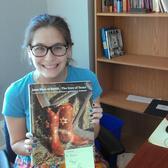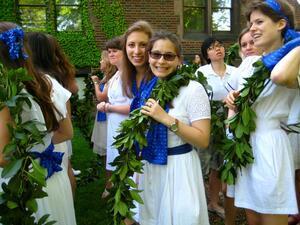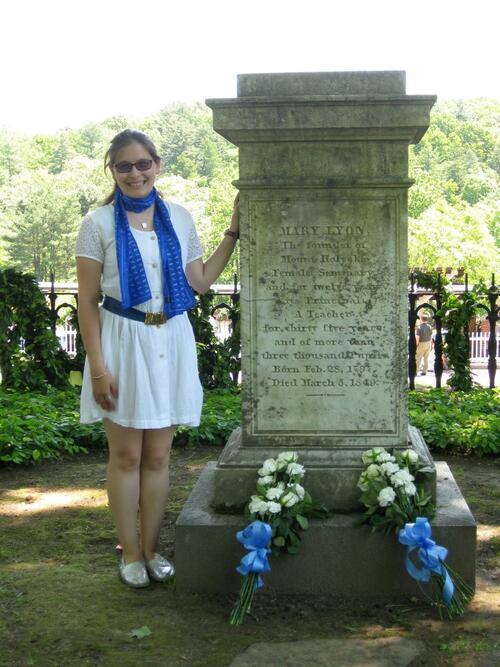Still Fighting for Bread & Roses
It’s been two weeks since our New York Educator’s Workshop, and I am still amazed at the places we visited and all that was taught by Etta, Ellen, Rabbi Jill Jacobs, and all the participants and presenters in attendance. It occurred to me recently how connected I feel to the labor rights movement, which we discussed as we stood in the Tenement Museum on the Lower East Side. Of course there’s the Jewish connection: Jews made up a large percentage of the population of advocates and protesters in the fight for labor rights in the late nineteenth and early twentieth centuries in America. Jewish teachings and Yiddish phrases were often incorporated into the battle cries of the rioters. For me personally, there is much more to it than that.
Over a year ago, I graduated from Mount Holyoke College, the oldest and one of the few remaining all-women’s colleges in America. Arguably the most meaningful event of the graduation weekend is the Laurel Parade. The Laurel Chain Ceremony at Mount Holyoke began in 1902, and turned into a Laurel Parade in 1932 when it was integrated into the Alumnae Parade. It could be argued that the concept of the parade was inspired by the marches of the suffragists and labor organizers. It is certain that graduates and alumnae who return for their reunions wear white in solidarity with these same activists, and carry signs and banners telling the history of their classes and time spent at the college. Initially, the signs were created as a replacement for the laurel chain, when the class of 1970 used the Laurel Parade as a protest for the Vietnam War, and donated the funds normally used for the laurel chain to a summer program for disadvantaged girls. It is clear from these traditions that Mount Holyoke women have a well-developed sense of social justice, and I believe this is related to the integration of supporting activism within the parade.
The parade ends with the graduating seniors wrapping the laurel chain around the grave of Mary Lyon, founder of the college, and singing “Bread & Roses.” Written in 1912, the the poem was inspired and recited by protesting textile workers during an epic eight-week strike in Lawrence, MA. The music was written by activist and folk singer Mimi Farina in 1976. We continue to sing “Bread & Roses” to recognize that while the workers in Lawrence gained their rights over 100 years ago, there are people still fighting for social justice today.
One of my personal missions in life is to make sure history is not forgotten, that we continue to acknowledge, learn from, and are inspired by the past. Without Mary Lyon advocating for women’s education, there would be no Mount Holyoke College. Without the strikers and marchers of the labor rights movement during the past hundred years, the way we live and work would be very different. The Tenement Museum and songs like “Bread & Roses” serve to remind and further educate us about past and ongoing needs for labor rights’ and human rights’ advocacy.









Bread & Roses was first sung at the Laurel Parade in 1978, the year I graduated from Mount Holyoke.
As a graduate of Smith College (a sister college to Mount Holyoke), I'm filled with memories and pride for our own version of the Laurel Parade at our Ivy Day. This is a great way to tie together two different strands of your own story and history, Miriam. Thanks for this; glad you're still singing for Bread & Roses.